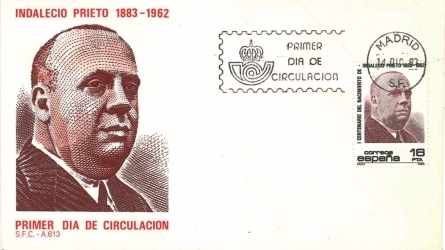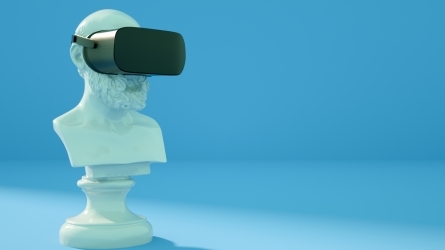
BAI/NOT: Intermediación e Inteligencia Artificial, Nuevas Ontologías Tecnológicas: Entender la Incertidumbre desde la Cultura y la Mediación
This course will be held from a techno-optimistic perspective, based on the changes that Artificial Intelligence is generating and will generate in our environment, from the re-intermediation of jobs and the creative use of technology.
Description
The noise that exists around Artificial Intelligence, the huge number of conferences and seminars on the subject, and the uncertainty that generates in some jobs, leads us, in this Summer Course, to re-think what we understand by this term and how culture and the humanities can help us to manage possible futures.
This course will be held from a techno-optimistic perspective, based on the changes that Artificial Intelligence is generating and will generate in our environment, from the re-intermediation of jobs and the creative use of technology.
There are multiple case studies that analyse through indicators the social value of culture and its purpose in periods of uncertainty. The different crises have reflected the precariousness of a large part of the cultural sub-sectors; however, it has been corroborated as well the capacity of these disciplines to improve people's quality of life and mitigate direct and indirect impacts in the post-crisis. BAI/NOT's role is to observe this interconnection, to analyse, interpret and use it in an organised way, and to highlight the role of culture in this scenario.
Objectives
Identify the tools and methodologies that cultural mediation can provide to face the challenges that AI poses to us as society.
Activity directed to
- All public
- University student
- Students not from university
- Teachers
- Professionals
Program
16-09-2025
Presentation by the Director of the activity
- Álvaro Fierro Sedano | UPV/EHU - Profesor
Round table: “¿Nos gobernará un algorítmo o un algortimo? Entender la Incertidumbre desde la Cultura y la Mediación“
- Antonio Casado da Rocha | UPV/EHU - Profesor y moderador (Moderator)
- Irati Berasategi Aspuru | Las Perrera - Filósofa y física
- Joseba Lopezortega | Zinebi - Director de Zinebi
- Bertha Bermudez Pascual
Break
Round table: “BAI/NOT: Bitartekariak eta Adimen Artifiziala. Nuevas Ontologías Tecnológicas. Entender la Incertidumbre desde la Cultura y la Mediación“
- Larraitz Fagundez Osa | Kontu Lab - Profesora y moderadora (Moderator)
- María Montesino de la Iglesia | La Ortiga Colectiva - Socióloga
- Jorge Navarro | Biznaga - Músico
Closing session
- Jose Luis Agreda | Director de Arte de Robot Dreams
Directors
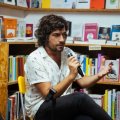
Álvaro Fierro
EHU
Álvaro Fierro es Doctor en Economía por la Universidad del País Vasco/ Euskal Herriko Unibertsitatea; ha realizado una estancia de investigación en la Universidad de Leicester (Reino Unido) y su formación académica y profesional está centrada en la Economía Aplicada y la Cultura. En el ámbito profesional, es fundador de la empresa Cultumetria y es Profesor en la Universidad del País Vasco en la Facultad de Economía y Empresa. Asimismo, es profesor visitante en la Universidad Complutense de Madrid.
Speakers
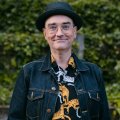
Jose Luis Agreda
José Luis Ágreda. Director de Arte. Artista con un sello muy personal, lleva 25 años dedicado al dibujo, como diseñador y director de arte en cine de animación, ilustrador editorial y de prensa (El País) y creador de cómic (El Jueves). En animación, destaca su trabajo como Director de Arte en Robot Dreams (Arcadia Motion Pictures), la última película del director Pablo Berger, estrenada en el festival d Cannes, ganadora en Annecy del premio Contrechanp’ y nominada a los premios Oscar, entre múltiples reconocimientos internacionales. También firmó como Director de Arte en el largometraje Buñuel en el Laberinto de las Tortugas, Premio del Jurado en el festival de Annecy y Goya 2020 a la Mejor Película de Animación. En ambos casos, las películas ganaron el premio a Mejor Película de Animación en los European Film Awards. También ha sido Director de Arte de la serie de animación Viking Skool en el prestigioso estudio irlandés Cartoon Saloon, para Disney TV. Actualmente trabaja para Uniko como director de arte en Decorado, último largometraje animado de Alberto Vázquez.
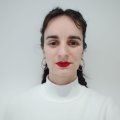
Irati Berasategi Aspuru
Fisikan Graduatua da eta Filosofia, Zientzia eta Balioak masterra egin du EHUn. Orduan hasi zen, ikuspegi filosofiko batetik, adimen artifizialaren eta kontzientzia artifizialaren arteko lotura ikertzen, eta honen garapenak eta ezarpenak dituen eraginak aztertu ditu baita. Ideia horien laburpen bat Elhuyar aldizkarian dago argitaratuta, "Adimen artifizialetik kontzientzia artifizialera" artikuluan. Oraindik ere, interes handia pizten dion gaia da eta zenbait mahai ingurutan parte hartu du teknologiaren garapena alderdi filosofiko batetik lantzera gonbidatuz. Egun, irakaskuntza masterra egin ondoren, Bilboko La Perrera espazioa koordinatzen eta gazteei zuzendutako STEAM programak garatzen dihardu, teknologia modu zabalean landu eta azter dezaten gazteek. Gainera, Filosofiako Gradua hasi du UNEDen alderdi filosofikoaren eta teknologiaren inguruan ikertzen jarraitu ahal izateko.

Bertha Bermudez Pascual
After a career as a dancer with choreographers of the prestige of Maurice Bejart, William Forsythe, Nacho Duato, Rui Horta, Paul Solvin Norton, Gregory Colbert and Emio Greco| Pieter C. Scholten, Bermúdez directs her professional career towards the field of transmission, research and documentation of dance, coordinating and directing various mediation and study projects for the ICK Amsterdam Choreographic Center, Amsterdam Hoogschool, the Music and Arts Archive Performing arts from Navarra, Gipuzkoako Dantzagunea and Dantzaz. She collaborates closely with different European research groups focused on the analysis of dance, documentation and digital media and has worked, since 2016, in Dantzaz from the coordination of the Red Atalak project, in the development of projects and in the accompaniment of choreographers.
Antonio Casado da Rocha is a researcher and professor of philosophy at the University of the Basque Country (UPV/EHU), where he currently leads the area of Responsible Research. He has served on the Clinical Ethics Committee of Donostia Hospital and received the Bioethics Research Award from the Víctor Grífols i Lucas Foundation. His career combines extensive interdisciplinary academic work with experience in university management and the promotion of the social impact of knowledge.
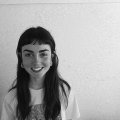
Larraitz Fagundez Osa
Larraitz Fagundez Osa has a degree in Social Anthropology and a master's degree in this field, both from the UPV. She has worked in the field of communication and culture. In her final degree and master's degree projects, she has focused on the changes that are taking place in the political imaginary and in socio-political participation, in each case from a particular point of view: the ‘victims’ movements, on borders and migrations, etc. She is currently working on a doctoral thesis with the Predok contract from the Basque Government to investigate the changes in the ways of understanding ‘activism’ and its reflection in the Basque cultural and artistic spheres.
Álvaro Fierro es Doctor en Economía por la Universidad del País Vasco/ Euskal Herriko Unibertsitatea; ha realizado una estancia de investigación en la Universidad de Leicester (Reino Unido) y su formación académica y profesional está centrada en la Economía Aplicada y la Cultura. En el ámbito profesional, es fundador de la empresa Cultumetria y es Profesor en la Universidad del País Vasco en la Facultad de Economía y Empresa. Asimismo, es profesor visitante en la Universidad Complutense de Madrid.

Joseba Lopezortega
Director de ZINEBI, Festival Internacional de Cine Documental y Cortometraje de Bilbao. Es historiador y experto en ideación e industrias culturales y creativas. Crítico de ópera y música clásica, publica habitualmente en el suplemento cultural Territorios de El Correo. Es miembro del Consejo Vasco de la Cultura y de la Comisión de Industrias Culturales y Creativas e Inteligencia Artificial del Consejo. Inició su trayectoria audiovisual en los años 80 en ZINEBI, festival que dirigió entre 1988 y 1990, y al que regresó como director en 2024. Ha sido responsable de muestras como MIMAD (Círculo de BBAA de Madrid) y Visionarios Españoles (Museo Reina Sofía), y ha impulsado proyectos para entidades como SGAE, ABAO Bilbao Opera, BBK o el Museo Guggenheim Bilbao. ZINEBI, especializado en cortometrajes de ficción, documental y animación, está reconocido como festival de máxima categoría por la FIAPF.

María Montesino de la Iglesia
María Montesino es socióloga, investigadora y ganadera agroecológica. Actualmente se encuentra finalizando su tesis doctoral sobre comunales rurales, procesos participativos y patrimonio inmaterial en la Universidad del País Vasco. Coordinadora de La Ortiga Colectiva, una asociación cultural que explora las distintas conexiones entre la cultura comunitaria, las ruralidades y la transición ecosocial. Ganadera en Dehesa La Lejuca, una ganadería 100% de pasto en la alta montaña del sur de Cantabria.
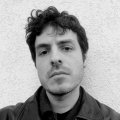
Jorge Navarro
Lyricist and composer of the Madrid punk band Biznaga, authors of five studio albums and a multitude of concerts.
Registration fees
| Face-to-face | Until 30-06-2025 | Until 16-09-2025 |
|---|---|---|
| 25,00 EUR | 34,00 EUR | |
| - | 48,00 EUR | |
| - | 41,00 EUR | |
| - | 34,00 EUR |
Venue
Bizkaia Aretoa-UPV/EHU
Avenida Abandoibarra, 3. 48009- Bilbao
Bizkaia
Bizkaia Aretoa-UPV/EHU
Avenida Abandoibarra, 3. 48009- Bilbao
Bizkaia
Sustainable development goals
Agenda 2030 is the new international development agenda approved in September 2015 by the United Nations. This agenda aims to be an instrument to favour sustainable human development all over the planet, and its main pillars are the eradication of poverty, a reduction in equality and vulnerability and fostering sustainability. It is a unique opportunity to transform the world up to 2030 and guarantee human rights for all.

4 - Quality education
Guarantee quality education that is inclusive and equitable and foster opportunities for lifelong learning for everyone. Key issues: free-of-charge, equitable and quality education, access to higher education and training on an equal basis, education for sustainable development, suitable education centres for persons with disabilities, and safe, non-violent and efficient learning environments.
More information






